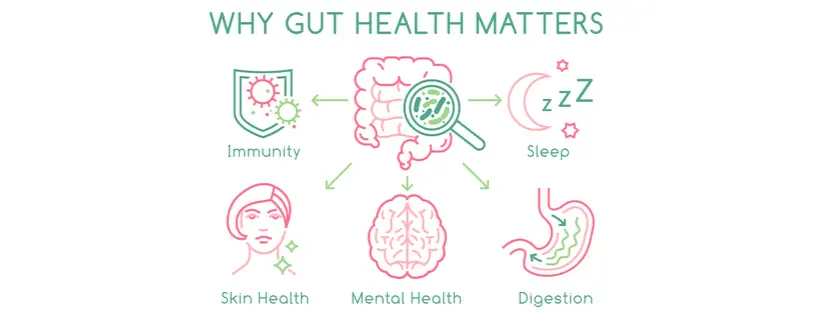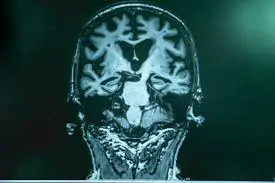The Gut-Brain Health FAQ Guide
The human gut is a fascinating place. It’s home to more than 10,000+ different species of bacteria, which means you have a lot of other microscopic creatures living there. Lately, there have been a lot of questions about how our gut health affects our brain, mental health, mood, and more. This guide answers the most commonly asked questions about gut health.
What is Gut Health?
Gut health is your internal health. It’s about your bacteria, digestive system, immune system, and the nutrients you consume. Many things can impact your gut health, such as stress, diet, weight, medications, and even lifestyle. The best way to improve your gut health is to make specific lifestyle changes, like eating a healthy diet, exercising, and reducing stress. In addition, your health care provider can help you identify factors contributing to your gut health issues, like a diet low in fiber, high in processed foods, or low in fat can cause health problems.
What is the Microbiome?
The human gut is a complex ecosystem consisting of trillions of microorganisms. Bacteria, viruses, and other “good” bugs make up this microbiome, which can affect our health in numerous ways. The gut microbiome is influenced by diet, nature, and genetics. It can also be impacted by medications and surgeries. Your gut microbiome is also influenced by stress. It’s been shown that people who experience higher levels of stress have less diversity in their gut microbiome.
How Gut Health Affects Mental Health
Studies on the relationship between the gut and mental health have been mixed. Some research has found a link, while other smaller studies have not. One study, for example, surveyed over 1,000 people and found that people with anxiety disorders are more likely to have a weakened gut microbiota and develop Depression.
How Gut Health Affects Mood
Many things can impact your emotional health, and poor gut health can play a role. If you struggle with Depression, poor gut health may make it harder to feel happy. Being preoccupied with Anxiety or stress may make it hard to feel calm. If you struggle with Anxiety or Depression, those symptoms may be hard to get your gut health checked out by a professional. Asking for help is an excellent step toward finding solutions to your gut health and mood.
Mood disorders are a group of disorders characterized by an abnormal or disturbed mood. They can be classified into two main categories, depressive disorders and anxiety disorders. While both Depression and Anxiety are treatable, Depression is more serious.
Maintaining a healthy gut flora is likely one reason why Depression is so common. High levels of harmful bacteria in the gut may indicate that you’re stressed out and may cause you to feel down by impairing your serotonin production.
How the Microbiome Affects Mood
The microbiome study has advanced rapidly in recent years, with the increasing understanding of its role in human health and disease. For example, researchers now know that the microbiome can profoundly impact mental health. Some studies suggest that changes in the microbiome may be a critical factor in developing mood disorders, such as Depression.
In a study published in the Journal of Affective Disorders, researchers used a unique combination of techniques to investigate how the microbiome affects the structure and function of the hippocampus. The hippocampus is a part of the brain that processes emotional information, memory, and learning and remembering new skills.
The researchers looked at changes in the structure and function of the hippocampus in 19 people who had major Depression and 19 people who were matched for age and gender but had no mood disorder. In addition, the researchers analyzed the participants’ blood samples to look for changes in the levels of certain bacteria.
The team found that changes in the bacteria levels in the participants’ blood were associated with changes in the structure and function of the hippocampus. Furthermore, the changes in the structure of the hippocampus were linked to changes in the participants’ moods.
Many studies have shown a connection between the microbiome in the gut and the hippocampus’s ability to control behavior, form memories, and learn.
Is Serotonin Made in the Gut?
It is now well known that serotonin is made in the gut and that its production is critical for mental and physical health. Researchers believe that low serotonin levels in the body can be caused by several factors, including stress, poor diet, medications, and even lack of sleep. Therefore, it is important to keep track of your stress levels, diet, and sleep to ensure that you produce enough serotonin in your body to balance out low levels.
What is Serotonin?
Serotonin is a neurotransmitter found in the brain and intestines. It is essential for mood, appetite, and sleep, among other things. The gut is home to the largest concentration of serotonin receptors out of any organ in the body. Researchers believe that the gut microbiome’s rich environment affects serotonin’s synthesis and secretion.
It’s estimated that about 3% of the population has low serotonin levels in their blood. This is thought to be due to a lack of serotonin in the intestines.
How gut health affects Anxiety
Anxiety is a common condition and is thought to be caused by a myriad of things, including a weak immune system, high-stress levels, and low levels of endocannabinoid, which is believed to be responsible for anti-anxiety effects.
Also, there’s a strong link between gut and Anxiety, as bacteria can often trigger anxiety-related behaviors in the gut. So, how can you support the gut and improve your Anxiety? For example, one study found that when people consumed yogurt with active cultures, their behavior changed, and they no longer experienced Anxiety.
How the Microbiome Affects Anxiety
The gut-brain connection has been well-documented and is one of the primary ways the immune, nervous, and endocrine systems communicate. When the immune system is overactive, it can cause various problems, from skin issues to autoimmune diseases.
Chronic inflammation can be a sign of Anxiety, and studies suggest that diet may play a role. Healthy eating includes foods that support the microbiome, like vegetables, fiber, and fruit, as well as those that calm it, like milk.
Chronic stress can cause your gut to become inflamed, which may lead to Anxiety. This is one reason it’s important to reduce stress by focusing on your breathing, exercising, and eating a healthy diet.
How Gut Health Affects Stress
One of the most important things you can do to support a healthy stress response is to eat a healthy diet. High-quality fats, fiber, and antioxidants in vegetables, fruits, and whole grains can help reduce stress levels and improve mental health.
When you’re on the road, it’s easy to reach for a bag of chips or a chocolate chip cookie. But eating these highly-processed foods can send your stress level skyrocketing. Processed foods are high in sugar, salt, and calories and have very little nutritional value.
When you’re stressed out, you need less food – not more. Some foods manage to make the stress response negative even when we’re hungry. Processed foods are one of the biggest causes of stress in our modern world.
Your digestive health is directly related to your overall health. For example, poor digestion can lead to increased stress levels and reduced immune function.
Stress is a feeling of tension and Anxiety that can affect your health. Chronic stress increases your risk of Depression and other health problems. However, you can take steps such as meditation, stress reduction techniques, and healthy eating to reduce your stress level and maintain a healthy digestive system.
How the Microbiome Affects Stress
The microbiome concept has been gaining traction over the past few years, and we are starting to understand its role in health and disease. The human microbiome is estimated to contain between 10,000 and 200,000 different species of bacteria. Some of these bacteria have been linked to health benefits, while others have been implicated in disease.
Researchers now believe the microbiome affects both physical and mental health. For example, altered gut bacteria has been linked to obesity, as discussed in this article. In addition, the bacteria in our digestive system have complex relationships with one another. For example, probiotics may affect one group of bacteria, while prebiotics feeds another group of bacteria.
In addition to its impact on physical health, the microbiome also plays a role in mental health. For example, a change in the microbiome can trigger stress responses. Therefore, paying attention to how your microbiome affects your stress response is essential.
How gut health affects Depression
The connection between gut and Depression is still being studied, but some research suggests a link. One study, for example, surveyed more than 1,000 people and found that people with poor gut microbiota are more likely to develop Depression. In addition, some research suggests that certain Lactobacillus species improve stress resilience and Anxiety. Some studies even show that taking probiotics can help alleviate symptoms of Depression! Probiotics keep the gut ecosystem balanced and help prevent dysbiosis.
Microbiome and Depression
We know that changes in the microbiome can cause or contribute to Depression. However, the exact cause of this connection is still not clear. It is well-known that changes in the microbiome over time can be a good sign. However, it can also be a bad sign.
Some studies suggest that changing your microbiome through diet or taking antibiotics can make you more depressed. However, this is not true for all studies, so it’s best to remember that each body is different. The best way to learn more about the link between your microbiome and Depression is to work with a medical doctor.
How gut health affects the brain
Your gut health is closely tied to your brain health. When your gut is healthy, so is your brain. The two work together to maintain a healthy body and mind. Your digestive system comprises several key organs, such as your stomach, small & large intestines, pancreas, and gallbladder, and these all work together to process nutrients coming into the body.
Your digestive health also profoundly affects your mood. For example, poorly functioning digestion can lead to bifidobacteria deficiency, contributing to mental health issues. However, there are ways to improve your digestive health. These can be as simple as drinking more water, eating foods high in fiber, or taking a probiotic.
How the Microbiome Affects the Brain
The microbiome, made up of trillions of microorganisms, affects every aspect of the brain. It is thought that the microbiome impacts levels of neurotransmitters within the brain, influencing mood, behavior, and learning. For example, levels of serotonin, dopamine, and norepinephrine can be affected by the microbiome, with changes in the microbiome thought to be responsible for changes in these neurotransmitters.
How gut health affects memory
Your memory plays a vital role in your daily life. It allows you to learn and remember new things, understand what happened in your past and recognize familiar places. Studies have shown that people with a high-quality gut microbiota have better brain function and a higher IQ. Therefore, a connection likely exists between gut and brain health.
When the health of your digestive system is poor, you’re more likely to experience symptoms of forgetfulness, like poor brain function, poor memory, and difficulty concentrating. Poor digestion of foods, poor absorption of nutrients, and a lack of overall health in your digestive system all contribute to forgetfulness.
Good gut health affects your memory in several ways. For example, it can reduce Anxiety, improve mood, and support healthy brain function. It’s also important to maintain a healthy gut flora, which can reduce the risk of functional and mental disorders.
How the Microbiome Affects Memory
The way your microbiota impacts your memory is not well understood. However, it is likely that your intestinal flora plays an important role. Researchers believe that your intestinal flora affects how well your brain communicates with your body. This may impact your ability to learn and remember. It is likely that changing your diet can improve your ability to train your brain. This may help you reduce your Anxiety and improve your memory.
How Gut Health Affects Sleep
Your brain is about as static as your gut. It’s constantly changing and growing, and that’s what’s so fascinating about it. There’s been a lot of talk about optimizing your gut health for a long time, and now there’s even more awareness about the connection between the gut and sleep. Gut healing programs have been around for a while, and they typically focus on optimizing your gut bacteria and encouraging good gut flora. You can also try taking a probiotic supplement to support healthy sleep.
Gut health affects both the quality and the quantity of sleep you get. The health of your digestive system is essential for a healthy sleep cycle. Poorly functioning intestines can result in intestinal issues such as bloating, gas, diarrhea, and constipation. These digestive issues can make it harder to fall asleep and keep you awake at night.
In order to improve your digestive health, you should try to reduce stress and Anxiety, increase physical activity, and consume foods that nourish your gut.
Reducing stress and Anxiety can help you relax more at night. An improved digestive system can also help you get a good night’s rest.
Microbiome and Sleep
The gut microbiome — the community of bacteria, viruses, and other microbes that live in the human body — has been found to be a key player in regulating your sleep schedule. This is particularly true during the initial stages of sleep, which are marked by a rapid and frequent beat between the brain and muscles. In order to maintain this regular rhythm, your circadian rhythm (the internal biological clock) must be in sync with your microbiome.
For example, if you are a night-owl, your microbiome will be different from someone who is a morning person. Likewise, if you are prone to insomnia, you may have a different microbiome compared to someone who is easily aroused in the morning.
How Gut Health Affects Hormones
Your diet is a key factor in determining your hormones, and the type and amounts of foods you consume can significantly impact your hormone profile.
One study published in the journal of Nutritional Syndrome found that diet quality affects testosterone levels in men. As we age, our bodies become less able to produce some hormones properly, and the overproduction of certain hormones can cause health problems such as obesity, high blood pressure, and diabetes.
Foods that can cause an imbalance in your hormone profile include:
- Dairy
- Sugar
- Grains
- Legumes
- Protein
Gut Health and the Endocrine System
The endocrine system is a group of glands that release hormones into the blood to communicate with different organ systems. It’s a messaging system that balances the body, regulating everything from metabolism to digestion.
Though all our organs require a certain amount of maintenance, the endocrine system requires the most attention, as most of its maintenance involves the intake of the right foods.
Hormones maintain a range of functions in the body, like managing body temperature and metabolism. Without them, the human body would not be able to function properly. The gut microbiome affects nearly every hormone in your system too!
Hormones are produced in the body when certain conditions are met, such as a certain amount of blood sugar or the presence of a certain hormone. Therefore, if your gut microbiome is unbalanced, it can cause unmet conditions that can lead to low hormone production or even the inability to produce hormones. Hormones are incredibly important for health, especially during times of life when things are changing rapidly, such as puberty, adolescence, pregnancy, and menopause.
How Gut Health Impacts Alzheimer’s
Gut health is one of the top factors influencing the risk of Alzheimer’s disease. Imbalances in the gut microbiome — the community of bacteria, viruses, and other organisms that live in and on our bodies — may contribute to the development of Alzheimer’s. Dietary factors such as stress, antibiotics, and antibiotics can cause gut microbiome changes.
Chemicals from the environment such as air pollution, dangerous household chemicals, and stress can also change the balance of bacteria in the gut. Studies suggest that the lack of a healthy microbiome in the gut can increase the risk of developing Alzheimer’s. However, it’s important to note that the gut microbiome isn’t set in stone. It can be altered by dietary choices and lifestyle factors such as stress, infection, and weight loss, among other things.
Certain foods can significantly improve your health by reducing the risk of developing Alzheimer’s disease. Certain foods can reduce levels of beta-amyloid in the body, which is a hallmark feature of Alzheimer’s disease. Foods that lower levels of beta-amyloid include:
- Broccoli (for its high concentration of sulforaphane)
- Kiwi fruits
- Spinach
- Artichoke (for its high concentration of choline)
- Parsley
- Garlic
- Almonds
- Apple cider
- Popcorn (provides some protection against the development of this brain disease)
- Pepper
- Pumpkin
How The Microbiome Impacts Alzheimer’s
Alzheimer’s is a brain disease affecting millions of people worldwide. It is thought to result from a combination of genetic and environmental factors. Alzheimer’s is characterized by plaques and tangles of abnormal proteins in the brain.
The plaques are made up of a combination of tangles of proteins, including amyloid-beta, tau, and phosphorylated forms of N-methyl-d-aspartate (NMDA).
The tangles and plaques are believed to develop from genetic and environmental factors. The environment may play a role through the immune system, which targets the protein tangles and the microbiome.
The microbiome is a community of bacteria, fungi, and other organisms living in and around our bodies. It has been discovered that the microbiome affects brain health and function. For example, certain bacteria have been found to reduce beta-amyloid production.
How The Gut Impacts The Nervous System
The gut has a large impact on the nervous system. It has been connected to mood, digestion, immune system function, and much more.
When we are not feeling well and our digestive system is out of whack, it can significantly impact our nervous system. It’s like our body is saying, “I’m not happy with what’s happening here; let’s change things.” When our digestive system is out of whack, we can experience a number of things, such as an imbalance of:
– Blood sugar levels
– Mood
– Immune system function
– Digestion
– Nervous system function
– Blood pressure
– Weight
– Blood counts
– Tissue repair
– Immune system response
– Thymus function
The digestive system is the most extensive involuntary nervous system in the body. The enteric nervous system controls the activities of the digestive process. The splenic nervous system controls the respiratory, cardiovascular, and other functions.
When the digestive system is not functioning correctly, the nervous system is also not working properly. When the nervous system is not correctly functioning, it results in problems like Anxiety, Depression, and insomnia.
The Microbiome and the Nervous System
An imbalance in the gut microbiome can lead to various health issues, such as low testosterone levels, Anxiety, Depression, and autoimmune disorders like lupus. Chronic stress can also affect the microbiome, as can bacterial overgrowth and inflammation. All of these things impact the nervous system. Therefore, improving your gut health may help improve your health overall.



















